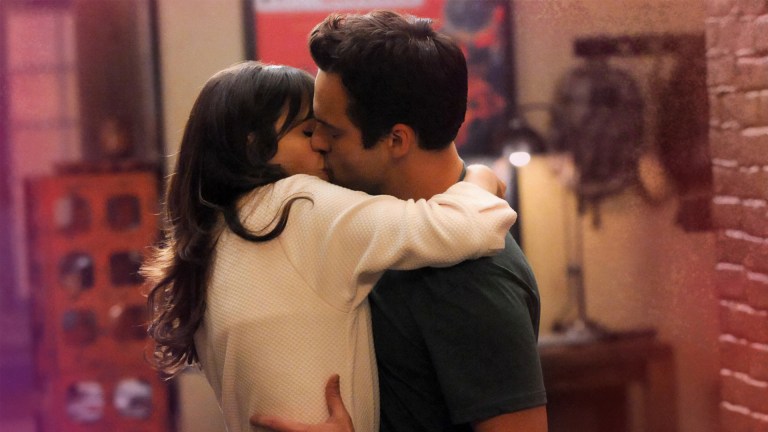
10 Things PTSD Would Tell Us (If It Could)
PTSD isn't that the person is refusing to let go of the past, but the past is refusing to let go of the person.
By ![]() Jaqui Duncan
Jaqui Duncan
Post Traumatic Stress Disorder is its own animal. It’s not that the person is refusing to let go of the past, but the past is refusing to let go of the person. If PTSD had its own voice, here are 10 things it would tell us all.

1. I live in inside more minds than you think.
Actually, 24.4 million right now, 44.7 million over a lifetime. That’s a lot, right?
I stem from fight-or-flight reflexes already inside you. You know that heart racing, breathe grabbing, muscle seizing feeling when you avoid a car wreck? The auto-pilot ninja moves you pull when your child is in danger?
That’s your natural intuition to survive and protect, all humans have it. But 20% of you won’t be able to turn it off right away for various reasons, ex: prolonged trauma, head injuries, repetitive abuse.
Don’t take it personally, I don’t live here because they’re weak…I live here because they survived. (We’re just arguing about how long I get to crash on the sub-conscious couch.)
2. I come in a variety of forms, don’t assume what I am to someone.
I show up in different ways: Battered Wives Syndrome, Situational PTSD, Complex PTSD, and more.
I act out in different people in different situations. Listen before making assumptions. If your friend tells you they have a chest cold, do you press them to go to the hospital for pneumonia?
Of course not. So when someone acknowledges my role in their lives, making them defend it based off of what you saw on a movie screen is going to make them regret telling you.
They can’t ask me to leave if they don’t know I’m here, don’t stand in the way of their progress.
3. Don’t brush me off based on how I got here.
We are all thankful to our veterans. I’m no stranger to them, unfortunately. Vets make up 30% of the diagnosed PTSD patients today. But too often non-combat PTSD patients are dismissed.
Rape victims, domestic violence survivors, police, firefighters, anyone who has experienced trauma is at risk for mental and neurological alteration.
Remember, when I’m present it isn’t about what’s wrong with them, it’s about what happened to them. Telling someone I’m not real because you think their trauma isn’t “trauma enough” never helps.
4. I have a habit of bringing unwanted company.
I can get masked in addiction, social anxiety, body dysmorphia, night terrors, manic episodes, rage disorders and violence.
While I’m in the house there is a 45-84% higher chance of domestic abuse to occur. Ever hear the saying “Hurt people hurt people”? The longer I take to be addressed, the longer I’m inviting bad company over.
It can even spread me around – Secondary PTSD occurs in many places I go.
If you know I’ve been somewhere without treatment, don’t forget to look for me in other forms & in their support circle. Don’t let me become a cycle.
5. I cause very real, physical, damage.
Fight-or-flight reaction: adrenaline increases, heart beats faster, breathing patterns change, muscles tense, pupils dilate, blood vessels constrict, and so on.
PTSD is the mind & body being on constant alert, even outside of episodes or panic attacks. I increase your body cell breakdown 25-45%. Musculoskeletal & gastrointestinal problems, heart disorders, thyroid/hormone abnormalities, and immune disorders are permanent damage I cause.
I make you 60% more likely to have a heart attack or stroke than people who have never met me. I am visible in brain scans in certain cases. I’m literally making them sick and tired; their bodies are responding to what their mind is trying to forget.
So when they say they’re hurting, it’s not just emotionally they’re talking about.
6. I crash the party with stressors, triggers, and episodes.
Sometimes I make their heart race a little, adrenaline increase a tad, but leave them in control.
Other days I can take over to the point that their conscious-self is aware they are not in danger – but their sub-conscious & body thinks they are. I can make them think they aren’t present at all.
They can smell, taste, & see their trauma like it’s happening all over again. I can do it awake, I can do it asleep. Figuring out what makes me want to “save them from harm” is crucial to know before I leave.
The smallest reminder can cause a reaction, when they voice one to you, don’t take it personally.
They aren’t being critical of you when they share things to avoid, they are asking for help as they heal. Let’s put it this way: if someone tell you they have shellfish allergies, you don’t bring crab salad to the bbq.
If you forget and do (hey, we’re all human), you wouldn’t be offended when they need their epi-pen, right?
7. I make space cadets, some days.
You’re driving somewhere you’ve been a million times. You reach your destination & realize you don’t know how you got there… you obviously drove, you definitely arrived… yet you spaced out the journey.
We’ve all been there, right?
That’s disassociation: a brain function we all experience. I cause it to happen more than it’s supposed to. I make them drift off by a smell, simple word, sensory overload, or a tick of a clock. They might daydream, hyper-focus on details, disconnect from their surroundings, or even just blank out words.
It’s not selective listening, it’s not that they don’t want to focus. I can make their world like a scratched movie; sometimes they realize they missed a scene, sometimes they don’t. Look, I’m not trying to ruin the story line, I’m trying to protect them from scenes I think might hurt them. Have patience.
8. Big strides in overcoming me might be things you see as NBD.
You go to the firework show every 4th; he hasn’t attended since his deployment. You put your arm around dates regularly; she hasn’t let anyone touch her since she escaped her abuser.
You go to the movies often, he hasn’t been in a crowded closed room since the shooting. You shower freely after sex, she hasn’t been naked in front of someone with the lights on since the assault.
Don’t overlook the “small victories” because they worked so very hard to reach them. Small steps climb vast stairwells. Celebrate the moment, and cherish that they chose you as their safety rail.
9. I can be easier to handle, IF you get to know me
Ask the person I’m effecting. Research me, get ideas. Plan ahead for my unexpected visits. Sure, I know I am over-whelming. At the core: I flash them back to when I came -or- press the start button on their flight-or-fight behaviors.
Remind my host they are not in danger like their body says. Grounding techniques vary: simple questions, random textiles in their hands, sucking on ice. “Shocking” one of the five senses so it tells the others to wake up.
Yes, the goal is for me to not cause this kind of ruckus. Until that day comes, there are things to stop/slow me from escalating…you never know what works for them until you ask.
10. I don’t HAVE to live here forever.
Most minds I dwell in recover, or at least learn to live around me. At least 50% of PTSD patients finish treatment successfully. Yeah, I may stay in a memory or the occasional bad dream, like most life events do. We are all shaped by experiences, good & bad.
I will leave them a different person than the one I met, but that doesn’t have to define them. They aren’t broken. They are human. They are survivors. May they wear their tragedies like armor, not shackles, by the time I go. ![]()
For more information about PSTD, read PTSD And Complex PTSD: What Happens When You’ve Lived In A Psychological War Zone.











